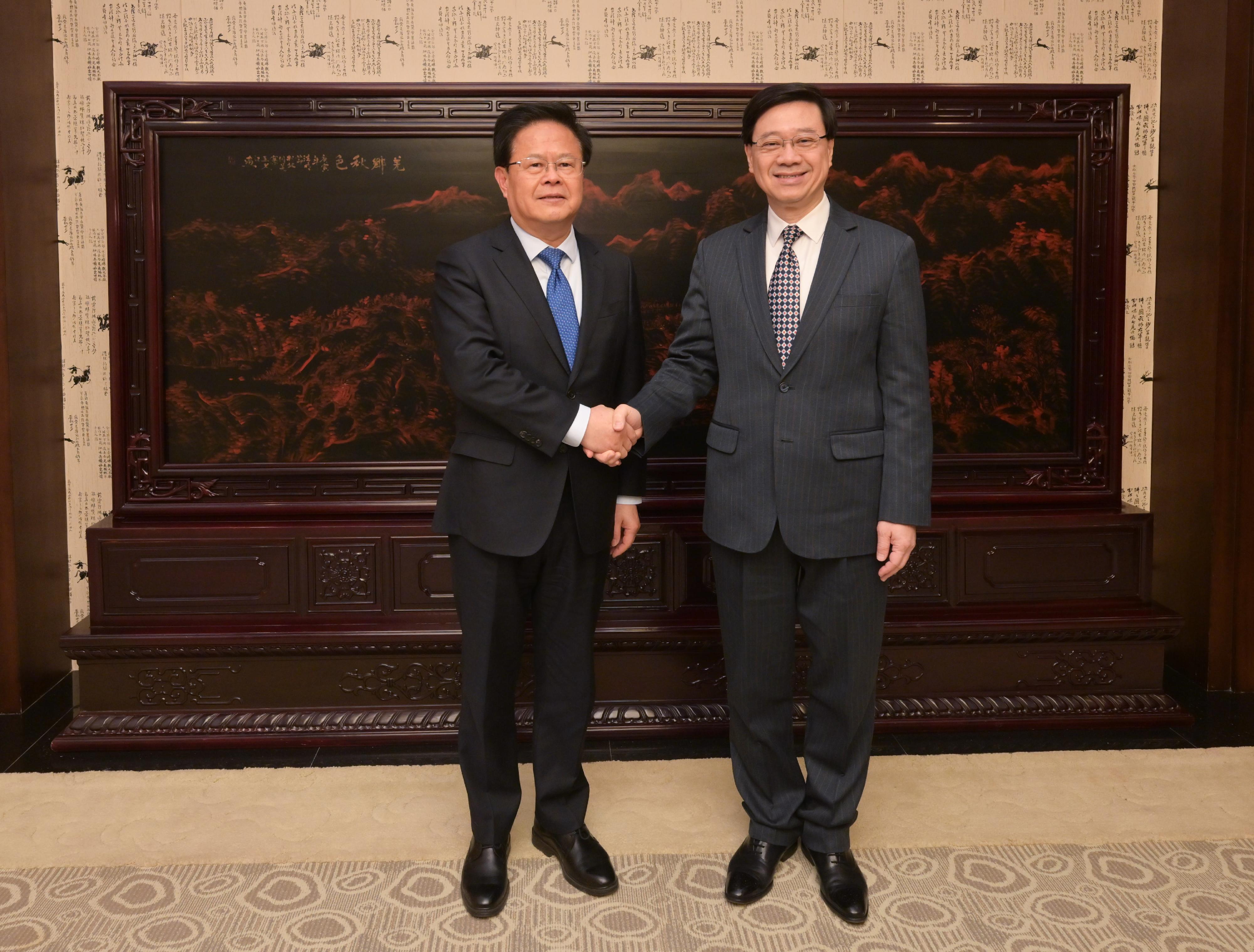CE calls on National Development and Reform Commission (with photo/video)
The Chief Executive, Mr John Lee, called on the National Development and Reform Commission (NDRC) and met with its Party Secretary and Chairman, Mr Zheng Shanjie, in Beijing today (December 20) to exchange views on the proactive integration of the Hong Kong Special Administrative Region (HKSAR) into national development.
Mr Lee expressed his gratitude to the NDRC’s support for Hong Kong’s efforts in consolidating and realising its development of the “eight centres” as outlined in the 14th Five-Year Plan. He also thanked the NDRC for its support all along for Hong Kong’s participation in and promotion of such national strategies as the development of the Guangdong-Hong Kong-Macao Greater Bay Area (GBA) and the Belt and Road Initiative. The NDRC’s support has facilitated Hong Kong’s better integration into national development, providing new and greater contribution to the high-quality development of the country, Mr Lee said.
He said that the HKSAR Government is committed to consolidating and continuously enhancing Hong Kong’s development of the “eight centres” under the 14th Five-Year Plan to provide impetus for the city’s competitiveness and sustainable economic growth, including developing “headquarters economy” to explore the immense opportunities brought about by the national and international dual circulation; capitalising on and unleashing the city’s advantages in financial services and deepening mutual access with the Mainland’s financial market; expanding the city’s global economic and trade networks and promoting regional co-operation; promoting the Hong Kong Innovation and Technology Development Blueprint and adopting an industry-oriented approach to promote new industrialisation in Hong Kong; and actively promoting the development of cultural and creative industries by capitalising on the city’s advantages as an East-meets-West centre for international cultural exchange.
Mr Lee said the HKSAR Government has published the Northern Metropolis Action Agenda, which adopts an industry-driven approach as its key planning axle in forging Hong Kong’s deeper integration into the overall development of the GBA. He added that the development of the Northern Metropolis will facilitate Hong Kong’s closer co-operation with other GBA cities, creating a strong growth impetus for Hong Kong and injecting new vigour into the development of the entire GBA. The HKSAR Government renders its full support to the Development Plan for Shenzhen Park of Hetao Shenzhen-Hong Kong Science and Technology Innovation Co-operation Zone promulgated by the Central Government, and will work with the Shenzhen Municipal Government to foster the synergistic development of the Hong Kong Park and the Shenzhen Park and achieve complementarity.
Mr Lee expressed his gratitude to the NDRC for its continuous support for the HKSAR Government’s proactive efforts in taking forward the above work.
Mr Lee departed for Hong Kong this afternoon.


